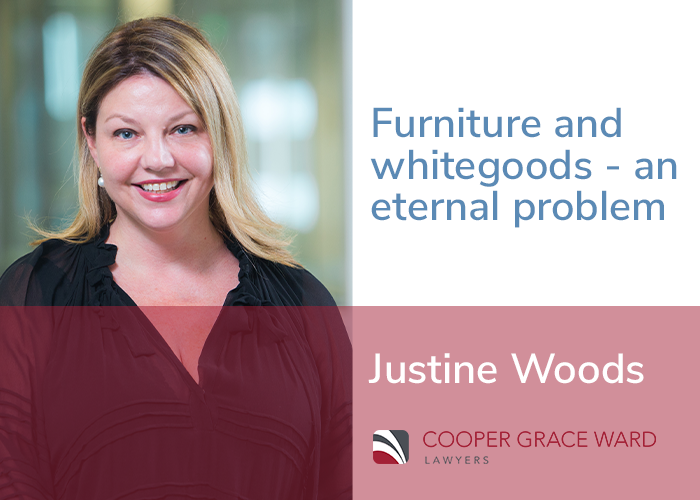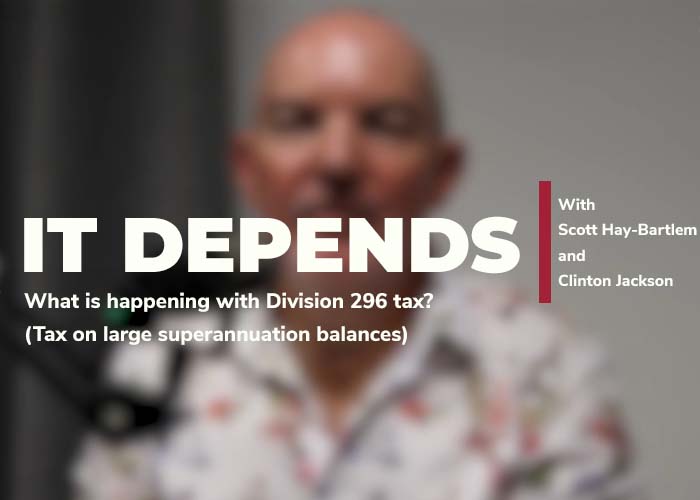In this video, CGW family law partner Justine Woods talks about goods and chattels – why some lawyers refuse to engage on this issue on behalf of their clients and why it’s important to take a commercial approach.
VIDEO TRANSCRIPT
Hello, hello everyone, I’m Justine Woods. I’m the family law partner at Cooper Grace Ward and today I thought that I would talk to you about goods and chattels.
Now, there are many family lawyers, including people I’ve worked with and some of my friends, who are family lawyers, who simply will not engage on this issue on behalf of their clients. They will refuse to write letters about the furniture, the white goods, the tools, the minor pieces of plant and equipment. Perhaps because I passionately love my own things, I don’t take that view. But I am terribly strict with my clients about taking a commercial approach about it.
Who gets to keep the personal belongings?
Now, there’s just been a case decided by the Family Court in Barstow and Barstow, which epitomizes why people cannot lose their minds about their personal belongings. So, in that case, the parties had conducted a business. They had had a family together, a long marriage. The husband went bankrupt. The company was put into liquidation. The impression, although the judgment is only partial, is that there was very little left at the end and the parties had had numerous interim hearings, a protracted litigation between them. At the very end of that, the husband brought an application that items which he said were his and his personal belongings of importance were to be ‘delivered up’, which is a legal term for ‘given back to’ him by the wife. And the wife said, ‘I refuse to open the storage containers that can be of no interest to the trustee in bankruptcy or to you.’ And the husband asked the court to draw the inference that his things must be in the container and that therefore he should be given them back. Now, the court said that, ‘We’re not going to draw that inference. That suspicion and concern are not going to adequately found this type of application.’
This is a lesson that I try and instil for all of my clients in the broader conduct of their family law matters is that they have a backup plan. Yes, you want this. You will be tested by your lawyer. I will test you if you come to see me about. Is that realistic and why? Do we need to do that and why? What could we do instead? But before you embark upon any litigation you need to have, in most cases, an alternative plan. So, in Barstow, the husband didn’t have any option presented to the judge other than ‘I want my things out of that container’. And the judge said, ‘Well, the husband hasn’t asked for a monetary sum if those belongings can’t be returned to him or no longer exist or have curiously disappeared.’ And so, the application was dismissed with costs.
So, that’s a lesson that is really of relevance to people across the board in their family law matter. What is my alternative to my ideal outcome? And we will talk to you about what your ideal outcome is and because your best interests are our focus, we will really question you about that. Sometimes what a person wants is precisely what’s reasonable and what the court is likely to consider to be just and equitable. And sometimes it is not. So, be prepared to be tested. That’s part of the program, and that’s part of protecting your own interests as you go through the litigation.
What should I do next?
If you have any questions and you’ve got things hidden in a container that you’re desperate to receive, you’re most welcome to call us to discuss it.





